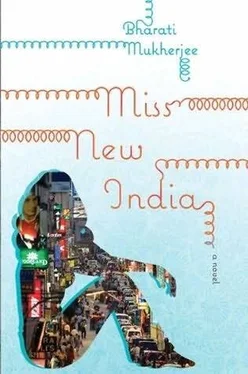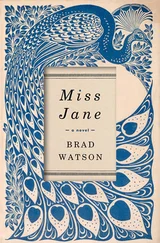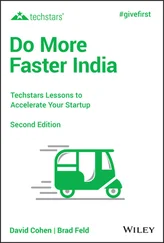Everyone but Angie Bose was on the move. She sat on her red Samsonite at the curb, dazed, hungry and confused. In her nearly twenty years, until meeting up with Subodh Mitra, she'd never felt overmatched. She'd made a joke of any challenge. But in less than a week she'd moved from the passive duties of childhood, waiting for marriage and adult life to begin, into something not quite like womanhood, without instruction. The immense journey and the enormous implications of her impetuousness remained. What-have-I-done? What-was-I-thinking? Nothing in her earlier life could guide her. Nothing was relevant.
Here and there, middle-class youths much like her-although most had alighted from express trains and had not sat cramped and halfstarved all night in a freezing bus, crossing deserts or steaming jungles-presentable young men in business suits and attractive young women with soft hands and letters of introduction and hearts set on making it in Silicon City, wheeled their bags directly to the taxi stands, around the burlap-covered mounds of produce and the jumble of cars and cycles, and through the crack-of-dawn mayhem caused by rural India assaulting the city.
Still sitting on her suitcase by the curb, Angie picked up a tattered English-language Bangalore newspaper and started reading. From the scowls and mutters of porters and passengers, she assumed she was being cursed for being in the way, but since they were speaking in Kannada or Tamil, she chose to ignore them.
She scanned the stories, none of them particularly relevant to her but all of them interesting and frightening, and she settled on an op-ed column by the paper's resident wit, "Dynamo." He declared that it was wrong to think of Bangalore as all "heartless materialism, lacking a proper respect for history." Dynamo claimed there was more passion-even knife play and gangs of hired thugs-behind every deed transfer in Bangalore than in Chinatown or The Godfather; more twisted connections between families than Faulkner ever dreamed of; more convolutions and memorable characters than in a Dickens novel. If Hindus buried their dead instead of cremating them, there'd be more crushed bones under the latest skyscraper than under the Great Wall of China. In fact, it could be said that history is proving to be Bangalore's most profitable industry. Every true Bangalorean is becoming an Arnold Toynbee. Every day in every municipal office, Bangaloreans are lining up to inform themselves of their ancestral stake in every deed transfer of the past two hundred years and how they might profit from it.
She did not relate to Dynamo's allusions to films or literature, but she was stirred by the evocation of reckless, even violent energy. If so many thousands-so many lakhs-had made the same decision she had, to come to Bangalore and start life over, and if she could regain her self-confidence and retain her stamina, then she had nothing to fear. She had good English and a quick smile. She had Peter Champion's two friends to count on. He had promised to write to them about her. From her curbside Samsonite perch, she could see scooters, auto-rickshaws, and bright new cars clogging every roadway, many of them driven by girls her age or younger.
What she knew was simple but profound. Energy and confidence create links between bright new cars, a rising ring of skyscrapers, and busy people clutching shopping bags with fancy logos. She wanted to be one of the people being waited on in upscale shops. She saw girls her age wearing crash helmets and maneuvering their motorcycles between stalled cars and around bullock carts, and she was determined to be one of them. She had nothing to lose, no good name to tarnish. No one knew her parents, and her parents had no idea where she was.
All of this and more she learned during her first half-hour in Bangalore from a single newspaper left folded on a bench. Kids fresh out of college were the new managers. She noted their names, from every region of India. Boys still in their twenties were building apartment blocks. Girls in their twenties were opening lifestyle shops. Hadn't Peter Champion let drop that she could be earning a monthly salary bigger than her father's, and for what-just for exercising her only talents, conversational English proficiency and a pleasing phone voice?
"Need taxi, big sister? I carry your luggage to taxi, no problem, and make sure meter is working."
Angie clutched her backpack even tighter. Her parents had warned her to be wary of Good Samaritans offering help in public places. In her parents' paranoid vision of the world, Good Samaritans were pickpockets working in teams of two. In Gauripur she had rebelled against this crippling cynicism, but not here in this bus depot. The young touts badgering her had been fellow riders on her bus, country boys, but they'd hit the ground running. They kept circling her, inching closer and closer. Then suddenly they melted away into the crowd of embarking and disembarking passengers.
A gang of older youths now menaced her. "Need hotel, big sister? Clean room. Close by bus and train. Concession rate. Bherry, bherry respectable."
She needed to sit tight and look composed while thinking through her immediate questions: How far is Kew Gardens and Minnie Bagehot's house from the bus depot, and could she afford an auto-rickshaw? She'd never been on her own in a real city. In Gauripur she'd always walked between school and home, and except for emergency trips to Dr. Triple-Chin Gupte's storefront clinic in Pinky Mahal (most recently for an excruciating ingrown toenail and before that for a hilsa fishbone stuck in the soft tissue of her throat), where else had she needed to go?
"Mind over matter" was one of her father's favorite adages. "Where there's a will, there's a way." So long as she didn't put all her eggs in one basket and remembered to look before she leaped, she'd be fine. Better than fine. She was not desperate; okay, she'd felt abandoned when the bus that had brought her to Bangalore pulled away from the curb, and, okay, okay, she'd panicked when the vendors and hostel touts had swarmed around her, but she hadn't felt despair. What she felt now… was guilt. Why had she had to hurt her parents to realize they cared for her, cared too much? Mind over matter, Baba. Silently she begged his forgiveness.
FINALLY A POLICEMAN approached and spoke to her in Kannada. The language sounded so alien, the tone so ambiguous, that she wasn't sure whether he was offering help or ordering her to move on. "Kew Gardens?" she asked.
The policeman shrugged. He tapped her suitcase with his lathi.
"Kew Gardens?" she repeated.
Again he shrugged. He looked her up and down and tapped the side of the suitcase. After a pause, he said, "Majestic." Then he made a sweeping gesture with his baton. "Bus stand, Majestic." He pointed his baton at the line of auto-rickshaws a few yards away. Then he lost interest in her and sauntered toward a knot of boys selling toys from trays suspended around their necks.
Angie slid off the suitcase and pulled it to the auto-rickshaw at the head of the stand. "Kew Gardens," she announced, as though it was the only street in town.
The driver turned his head from side to side and helped her load the big red bag on to the narrow seat beside her. He took off, bobbing and weaving on a thoroughfare that would have been generously wide anywhere in India but here was too narrow for the variety of vehicles. Motorcycles darted in and out of traffic lanes, almost brushing her elbow. Hyundais and Skodas were twice the size of anything she'd seen in Gauripur. Mercedes-Benzes, liveried chauffeurs at the wheel, sped past. Huge American cars, many with women drivers, snaked around her auto-rickshaw. To avoid panicking, she concentrated her gaze in the direction of the footpath that had to run alongside the road, but the footpaths- Sidewalk, she told herself, think American -had been torn up to make way for new sewers. She shut her eyes and kept them shut for a long time. When she opened them again, the road was wider, the trees shadier, the older buildings statelier, and the newer buildings taller and fancier. Towers of blue glass reflected the perfect blue sky. Bangalore had been built by a race of giants.
Читать дальше












